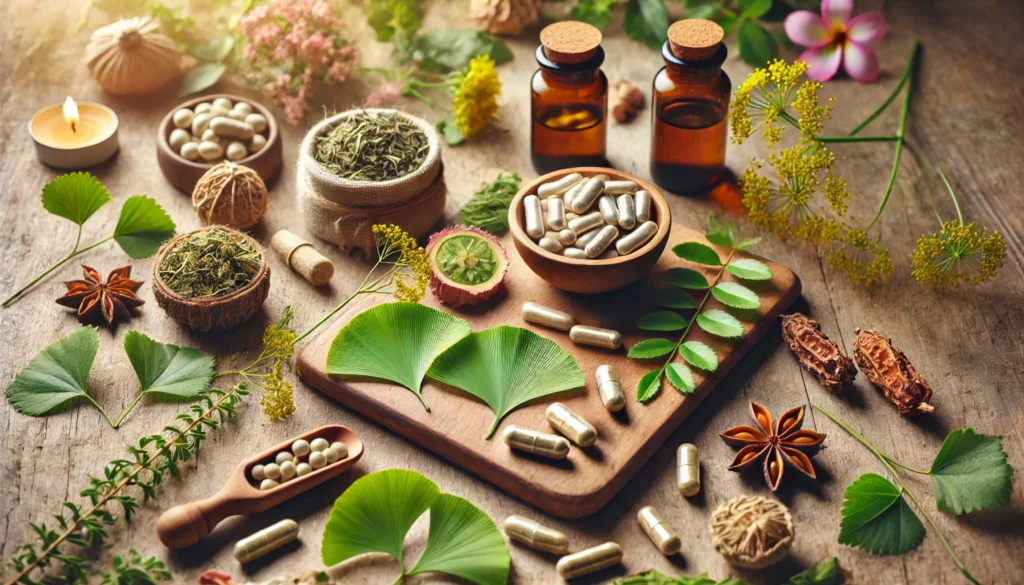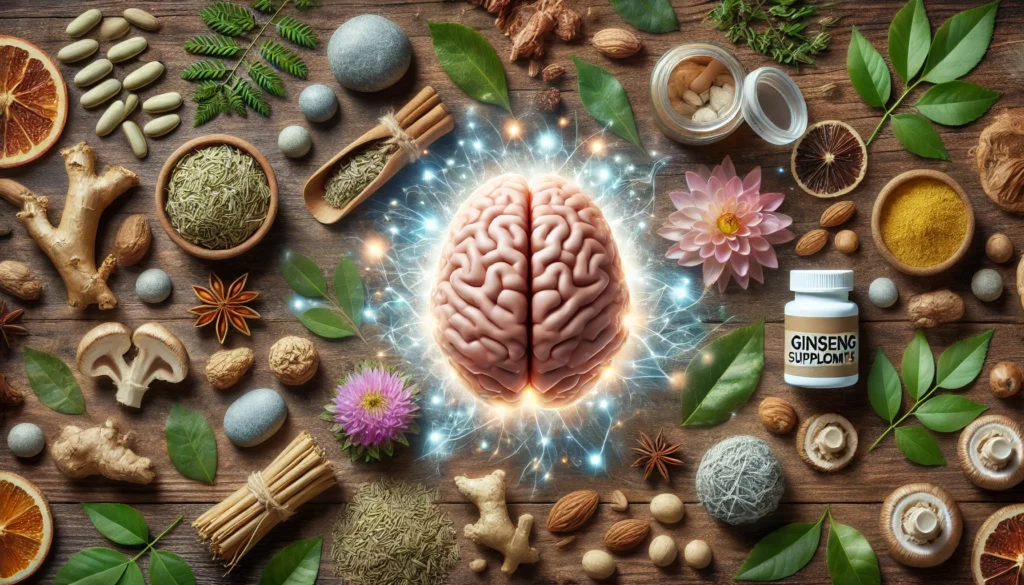As awareness around holistic health continues to expand, many parents and adults are exploring more natural options for managing symptoms of attention deficit hyperactivity disorder (ADHD). While stimulant medications like Ritalin and Adderall remain the most common treatments, a growing number of individuals are seeking alternatives that avoid pharmaceutical side effects, dependency concerns, and overstimulation. This shift has led to a rising interest in herbal remedies for ADHD that support concentration, reduce impulsivity, and promote emotional balance through plant-based, integrative approaches. Rooted in centuries of traditional medicine and increasingly supported by modern research, these natural interventions offer a promising path for those looking to address cognitive and behavioral challenges without prescription drugs. With the right combination of evidence-backed herbs, lifestyle changes, and supportive therapies, ADHD natural treatment can be both effective and sustainable.
You may also like: Exploring Natural SSRI Alternatives: Herbal Remedies for Anxiety and Mood Support

Understanding ADHD Through a Holistic Lens
Attention deficit hyperactivity disorder is often characterized by persistent patterns of inattention, hyperactivity, and impulsivity that interfere with functioning or development. However, a holistic perspective emphasizes that ADHD is not merely a neurological disorder but also a complex interplay of environmental, nutritional, emotional, and physiological factors. This broader understanding creates space for a wider range of therapeutic strategies. Rather than viewing ADHD as a condition that must be strictly medicated, many practitioners now focus on restoring internal balance and supporting the brain’s natural regulatory systems. This is where herbal remedies for ADHD play a pivotal role, helping regulate neurotransmitters, reduce inflammation, and support the body’s stress response without the risks associated with stimulants. For many families and individuals, this shift marks the beginning of a more personalized and empowering journey toward mental clarity and well-being.

Key Herbs Used in ADHD Natural Treatment
Several botanicals have shown promise in supporting attention, emotional regulation, and impulse control. One of the most well-known herbs in ADHD natural remedies is Bacopa monnieri, a staple of Ayurvedic medicine. Bacopa has been shown in multiple studies to improve memory, enhance cognitive processing, and reduce anxiety—all of which can benefit individuals with attention difficulties. Another important herb is Ginkgo biloba, known for its ability to improve cerebral blood flow and support executive function. Ginkgo may be especially helpful in combination with other herbs that target different pathways involved in ADHD. Rhodiola rosea, an adaptogen that helps the body manage stress, is often used to support mental endurance and stabilize mood. Collectively, these herbs contribute to a natural medicine for ADHD that addresses both the neurological and emotional components of the condition, offering multidimensional support.

Natural Remedies for Hyperactivity and Emotional Regulation
Hyperactivity and emotional dysregulation are two of the most challenging aspects of ADHD, particularly in children. Parents seeking a natural ADHD remedy for kids often look for calming herbs that promote relaxation without sedation. Chamomile, passionflower, and lemon balm are frequently used for this purpose. These gentle botanicals help ease restlessness and support better sleep—a key factor in behavioral regulation. Natural hyperactivity treatment doesn’t aim to suppress energy but to channel it constructively by calming the nervous system and reducing overstimulation. Ashwagandha, another adaptogenic herb, is increasingly used in holistic medicine for ADHD due to its ability to lower cortisol levels, modulate stress responses, and enhance focus. By supporting emotional resilience and nervous system balance, these herbs form the cornerstone of holistic ADHD treatment for kids and adults alike.
Alternatives to ADHD Medication in Practice
Choosing alternatives to ADHD meds often involves more than simply replacing pharmaceuticals with supplements. It requires a comprehensive approach that includes dietary modifications, behavioral strategies, and mind-body therapies. Herbal remedies function best when integrated into a larger lifestyle plan. For instance, omega-3 fatty acids, magnesium, and zinc have all been shown to support brain health and may complement natural medication for ADHD. Regular exercise, structured routines, and mindfulness practices such as meditation or yoga can also enhance the benefits of natural ADHD meds. What makes these ADHD natural remedies so appealing is that they aim not just to manage symptoms, but to support overall cognitive health, emotional balance, and physiological regulation. When chosen with intention and guided by expert advice, they can serve as an effective ADHD medication substitute that promotes long-term well-being.
Treating ADHD Naturally in Children and Adolescents
Children with ADHD often respond particularly well to holistic interventions, as their neuroplasticity makes them more adaptable to change. Herbal treatment for ADD in young individuals must be approached with care, ensuring proper dosing and safety, especially for younger age groups. Some of the most well-tolerated herbs for pediatric use include lemon balm, skullcap, and holy basil, which help calm nervous system overactivity. Many parents also explore how to treat attention deficit disorder naturally by combining these botanicals with behavioral therapy, dietary support, and home-based strategies. Using an ADHD home remedy that includes herbal teas, calming bedtime routines, and structured schedules can reinforce the effects of supplements. Holistic medicine for ADHD child care emphasizes cooperation between the child, parents, and practitioners to craft an individualized plan that supports attention, behavior, and emotional growth.
Scientific Perspective on Herbal and Natural ADHD Therapies
Although more large-scale studies are needed, existing research supports the use of several herbal remedies for ADHD. Clinical trials on Bacopa monnieri have demonstrated statistically significant improvements in cognitive function among children with ADHD, while studies on Ginkgo biloba have shown potential for enhancing attention and reducing impulsivity. These results align with the broader scientific interest in attention deficit hyperactivity disorder natural treatment as a valid complement or alternative to pharmaceutical interventions. Importantly, natural medication for attention deficit disorder does not typically produce the rebound effects or dependency risks associated with stimulants. Moreover, combining herbal therapies with evidence-based lifestyle modifications provides a strong foundation for treating ADHD naturally in a way that honors both modern science and traditional healing wisdom. This growing body of evidence affirms the legitimacy of holistic strategies and encourages further exploration into natural cures for attention deficit disorder.
The Role of Personalized and Integrative Care
Each person with ADHD experiences a unique set of challenges and strengths, which is why individualized care is so essential. A one-size-fits-all approach rarely works when it comes to ADHD natural help. Working with an integrative practitioner can help tailor the use of herbs, dietary changes, and behavioral tools to match an individual’s needs, preferences, and sensitivities. For example, someone who struggles more with focus than hyperactivity might benefit from stimulating herbs like Panax ginseng, while another experiencing anxiety and restlessness may do better with calming adaptogens like holy basil. Treating ADHD naturally requires attention to the whole person, including sleep patterns, digestive health, emotional stressors, and social environments. In this context, natural remedies for focus can be customized to support the brain gently and effectively, promoting resilience and clarity without the abrupt highs and lows of medication.
Frequently Asked Questions: Natural and Holistic ADHD Treatments
What are the most promising herbal remedies for ADHD that go beyond traditional supplements?
Emerging research suggests that beyond the commonly known herbs like Ginkgo biloba and Bacopa monnieri, other herbal remedies for ADHD—such as Gotu Kola and Rhodiola rosea—may offer neuroprotective and cognitive-enhancing effects. These lesser-known herbs support mental stamina, reduce brain fog, and promote emotional regulation. For individuals seeking an ADHD natural treatment, blending these botanicals with adaptogens like ashwagandha can provide synergistic benefits. It’s important to monitor for herb-drug interactions, especially when combining herbal remedies for ADHD with existing medications. Always consult a professional before incorporating new herbs into a regimen designed to treat ADD naturally.
Can lifestyle changes enhance the effectiveness of natural ADHD treatments?
Absolutely. When combined with herbal treatment for ADD or other natural ADHD remedies, lifestyle modifications can significantly improve outcomes. Physical activity, especially activities that involve coordination and focus—like martial arts or dance—enhance dopamine release naturally. A structured routine, quality sleep, and nutrition rich in omega-3s and magnesium support the brain’s baseline function, complementing any natural medication for ADHD. These foundational practices are essential for anyone exploring ADHD natural help as part of a comprehensive care plan. Long-term success often depends not just on the supplement, but on the environment and lifestyle that support focus and regulation.
Are there differences between natural ADHD remedies for children and adults?
Yes, children and adults metabolize herbal compounds differently, and the root causes of symptoms can vary by age. A natural ADHD remedy for kids often emphasizes gentler herbs like lemon balm or chamomile, which calm hyperactivity without sedation. In contrast, adults may benefit more from stimulating nootropics or adaptogens such as Panax ginseng or L-theanine. Holistic ADHD treatment for kids must also consider school structure, sensory input, and behavioral therapy alongside any herbal remedies for ADHD. Dosing and monitoring are critical—what works as a natural ADHD treatment for a child may be too mild or ineffective for an adult with executive functioning demands.
How do holistic ADHD approaches address emotional regulation?
Emotional regulation is a core struggle in ADHD, and holistic medicine for ADHD offers a multidimensional approach. Techniques such as mindfulness, biofeedback, and breathwork improve awareness of emotional triggers and self-regulation. Natural hyperactivity treatment often includes nervine herbs like passionflower or skullcap, which support calm without dulling alertness. Emotional dysregulation can also stem from micronutrient imbalances, making targeted supplementation a critical part of natural medicine for ADHD. This integrative strategy goes beyond symptom suppression and instead focuses on nervous system resilience, which is often overlooked in conventional treatment.
What is the role of dietary therapy in ADHD natural treatment?
Diet can be a powerful ally in treating ADHD naturally. Eliminating artificial dyes, refined sugars, and ultra-processed foods helps stabilize blood sugar and neurotransmitter levels. Natural remedies for focus often pair well with diets rich in high-quality protein, leafy greens, and slow-digesting carbohydrates. Emerging research supports using elimination diets to uncover sensitivities that exacerbate ADHD symptoms, especially in children. For many families, nutrition becomes the foundation of their approach to attention deficit hyperactivity disorder natural treatment, enhancing the efficacy of both herbal and behavioral interventions.
How do parents ensure safety when choosing a natural ADHD remedy for kids?
Safety begins with product transparency. Parents should prioritize natural ADHD meds that have third-party testing, proper dosing for children, and clearly listed ingredients. Consulting a pediatric integrative physician ensures any natural medication for attention deficit disorder aligns with a child’s unique developmental stage. Holistic medicine for ADHD child-centered care often integrates behavioral support and parental training alongside any supplementation. By focusing on safety, consistency, and professional guidance, parents can explore herbal treatment for ADD without risking overstimulation or under-treatment.
Are there effective alternatives to ADHD meds for people with co-occurring anxiety?
Yes, certain natural ADHD remedies can target both attention challenges and anxiety. Adaptogens like ashwagandha and nervine tonics like valerian root support both focus and emotional balance. This makes them valuable alternatives to ADHD medication when someone struggles with overstimulation or jitteriness from prescription stimulants. In these cases, natural medication for ADHD should be selected carefully to avoid increasing anxiety symptoms. Many who pursue ADHD natural help appreciate these dual-purpose herbs that address the broader nervous system without overwhelming it.
How does treating ADHD naturally align with long-term brain health?
ADHD treatment shouldn’t only target symptoms—it should support neurodevelopment and long-term brain resilience. Treating ADHD naturally often emphasizes antioxidants, anti-inflammatory herbs, and lifestyle practices that reduce oxidative stress. Herbal remedies for ADHD like Ginkgo biloba or curcumin not only enhance cognition but may protect neurons over time. By addressing the root causes of executive dysfunction and promoting neuroplasticity, attention deficit disorder natural treatment supports brain health into adulthood. This preventive, long-view approach is a major advantage of holistic medicine for ADHD.
Can natural remedies for hyperactivity be used during school hours?
Yes, many herbal remedies for hyperactivity are formulated to be non-sedating, making them appropriate for use during school. For instance, L-theanine can promote calm focus without causing drowsiness, while Rhodiola rosea supports mental stamina. These compounds serve as natural medication for ADHD that fits seamlessly into daytime routines. Parents should communicate with teachers and school nurses when introducing any new natural ADHD meds to ensure consistent support and monitoring. The goal is to help children self-regulate in learning environments without relying solely on stimulant medications.
What emerging research supports the use of natural cures for attention deficit disorder?
Recent studies have shown promise in polyherbal blends and personalized botanical protocols. For example, trials combining omega-3s with adaptogens and specific nootropics show measurable improvements in focus and impulse control. Natural cures for attention deficit disorder are also being explored through genetic testing, which may help tailor botanical support based on neurotransmitter function. While more robust clinical data is still needed, researchers are increasingly acknowledging the value of alternatives to ADHD meds that focus on whole-body health. As integrative medicine advances, the future of ADHD natural treatment is moving toward precision and personalization—without abandoning nature.
Conclusion: Embracing Holistic Medicine for ADHD and Building Lasting Mental Wellness
As public interest in non-pharmaceutical options continues to grow, the use of herbal remedies for ADHD has become a powerful tool in the pursuit of focus, emotional balance, and long-term cognitive wellness. These ADHD natural remedies offer more than symptom suppression; they create opportunities for healing, integration, and empowerment. Whether you are seeking an ADHD medication substitute for yourself, exploring natural ADHD remedy for kids, or simply curious about how to treat attention deficit disorder naturally, there are safe, effective, and scientifically supported pathways available. The combination of herbal support, lifestyle adjustments, and integrative care forms a compelling model for attention deficit disorder natural treatment that honors the whole person. In an age of rising stimulant prescriptions, the option to treat ADD naturally or turn to holistic ADHD treatment for kids offers a hopeful and grounded alternative rooted in both tradition and emerging science. With thoughtful guidance and commitment to personalization, natural cures for attention deficit disorder can help individuals thrive cognitively, emotionally, and physically.
focus enhancing herbs, calming herbs for kids, cognitive support supplements, plant-based brain boosters, stress relief for children, ADHD behavioral support, herbal cognitive enhancers, emotional regulation naturally, botanical solutions for attention, integrative mental health strategies, natural brain balance, adaptogens for children, herbal focus support, mind-body medicine for ADHD, nutritional support for focus, natural parenting approaches, stimulant-free ADHD support, children’s wellness herbs, brain function optimization, holistic child development
Further Reading:
Are there natural remedies for ADHD?
The information contained in this article is provided for general informational purposes only and is not intended to serve as medical, legal, or professional advice. While NewsHealthWatch strives to present accurate, up-to-date, and reliable content, no warranty or guarantee, expressed or implied, is made regarding the completeness, accuracy, or adequacy of the information provided. Readers are strongly advised to seek the guidance of a qualified healthcare provider or other relevant professionals before acting on any information contained in this article. NewsHealthWatch, its authors, editors, and contributors expressly disclaim any liability for any damages, losses, or consequences arising directly or indirectly from the use, interpretation, or reliance on any information presented herein. The views and opinions expressed in this article are those of the author(s) and do not necessarily reflect the official policies or positions of NewsHealthWatch.

